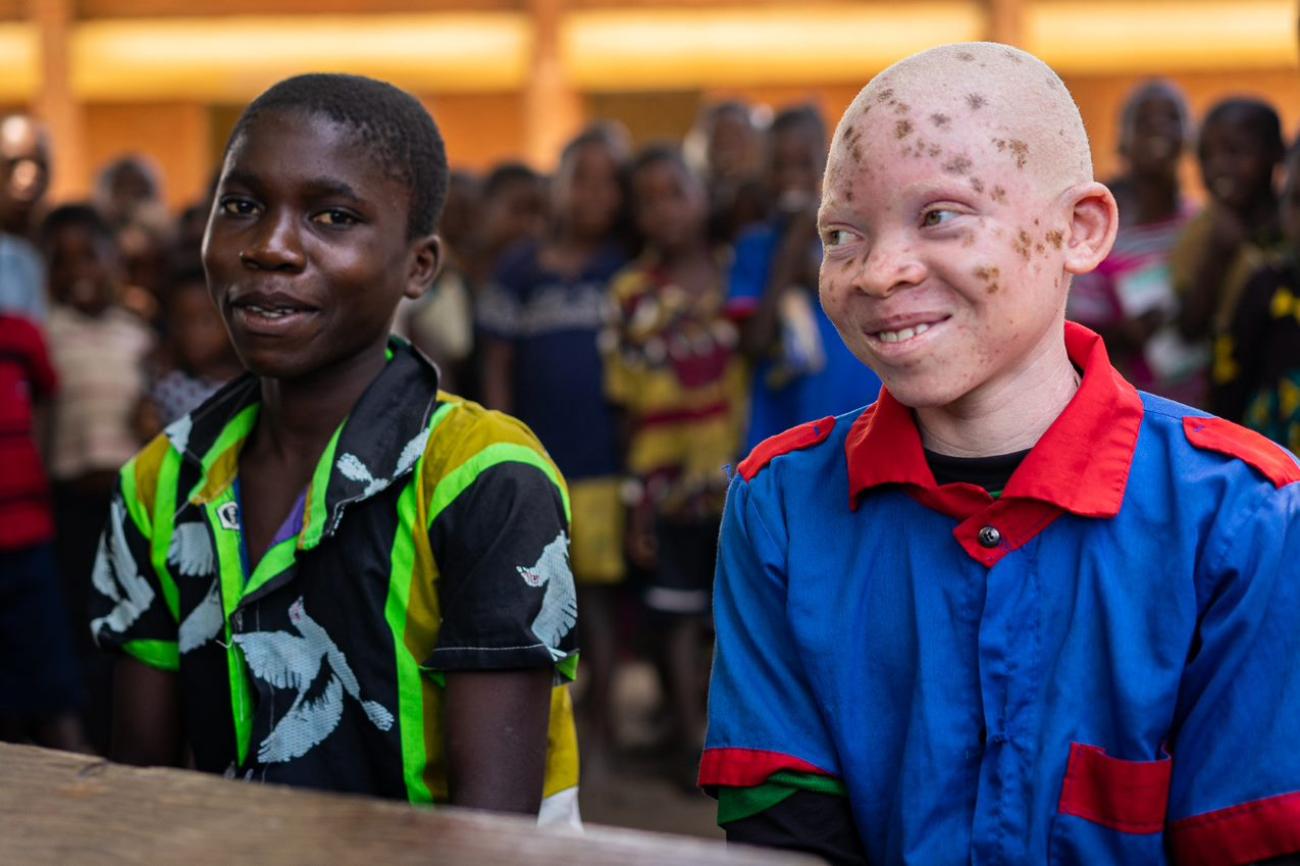United Nations Malawi Statement on International Albinism Awareness Day 2025

Elections must be a celebration of democracy, not a time of fear or insecurity for any group.
13 June 2025 – On this International Albinism Awareness Day, the United Nations in Malawi stands in solidarity with persons with albinism and joins the global community in reaffirming the right of all individuals to live with dignity, safety, and equality. This year’s theme – Demanding our rights: Protect our skin, Preserve our lives – calls for urgent action to prevent skin cancer and uphold the fundamental human rights of persons with albinism.
Albinism is a rare, non-contagious, genetically inherited condition that affects people worldwide, regardless of ethnicity or gender. In Malawi, the 2018 Population and Housing Census conducted by the National Statistical Office (NSO) recorded over 134,000 persons with albinism. Despite constitutional guarantees of equality and inclusion, persons with albinism continue to face disproportionate health risks and human rights violations.
One of the most pressing challenges is the high rate of preventable deaths due to skin cancer, which remains the leading cause of death for persons with albinism in Sub-Saharan Africa. Because of reduced melanin, individuals with albinism are extremely vulnerable to sun exposure. Without sustained protection, many develop life-threatening skin conditions, with most dying before the age of 40.
We commend the Government of Malawi for making free sunscreen available in public health facilities. This is a critical step forward. At the same time, the United Nations in Malawi calls for strengthened efforts to expand coverage, ensure consistent supply, and increase awareness—particularly in remote and underserved areas. Sunscreen must be recognised and treated as essential medicine, alongside routine dermatological check-ups and protective clothing, to prevent unnecessary suffering and loss of life.
We also commend Malawi for the important steps taken in investigating and prosecuting perpetrators of attacks against persons with albinisms. Despite this progress, persons with albinism in Malawi and neighbouring countries continue to face alarming threats to their safety. In recent years, there have been documented cases of killings, abductions, and exhumations of remains driven by harmful beliefs and practices, particularly during election periods. As Malawi heads toward its general elections in September 2025, the United Nations in Malawi urges all stakeholders to ensure heightened vigilance, protection, and justice for persons with albinism.
Elections must be a celebration of democracy, not a time of fear or insecurity for any group. Political leaders, security agencies, traditional authorities, civil society, and the media all have a responsibility to protect the rights and lives of persons with albinism before, during, and after the electoral process.
This year also marks the 10th anniversary of the establishment of the mandate of an Independent Expert on the enjoyment of human rights by persons with albinism by the Human Rights Council. While progress has been made globally, including in Malawi, significant gaps persist. The current mandate holder, Muluka-Anne Miti-Drummond, continues to call on governments to do more: “Governments must prioritise legal protections, inclusive services, and culturally sensitive education that dismantles stigma and discrimination. Only then can persons with albinism enjoy their full human rights in dignity and safety,” she said.
The United Nations in Malawi remains committed to supporting national efforts, alongside organisations such as the Association of Persons with Albinism in Malawi (APAM), to advance inclusion, access to health, public and political participation, safety, and justice. The lives of persons with albinism matter. Their rights are human rights.
Let us commit today, and every day, to a future where persons with albinism in Malawi live free from fear, free from harm, and with the full dignity they deserve.
(Ends)
For media queries
Bennet Phunyanya, Associate Communications Office, United Nations Resident Coordinator’s Office (UNRCO) | Email: bennet.phunyanya@undp.org








